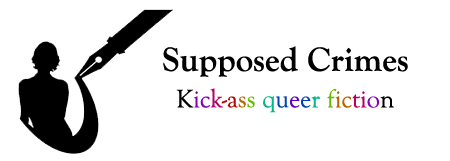
Lately, I’ve been seeing a lot of dislike for certain stylistic choices made by authors. Two of the big ones are use of present tense and writing in first person. As an avid reader of many styles and genres, I can’t imagine rejecting a book based on narrative style. It baffles me how anyone can say that it’s an automatic DNF if they buy a book and discover it’s written in first person, present tense, or (horror of horrors) both.
I have written exactly three things in present tense: one short story and one novella (both YA, both first person narration) and one novel that hasn’t been released yet (adult literary fiction, third person narration). The vast majority of my own work is in past tense. There’s no special reason for this other than that I prefer to use present tense sparingly and only when it feels right for the particular story I’m telling.
It seems people think this is a new phenomenon, but it truly isn’t. One of the pioneers of present-tense narrative is John Updike. All of the Rabbit books are written this way. While he’s often credited with being the first, he claimed there were others before him who inspired his appreciation for present tense.
Chances are high most people have read and enjoyed at least one book written in present tense. A fair amount of YA novels feature it: The Hunger Games is a great example. The going theory is that it puts the reader right into the life of the protagonist and delivers a sense of immediacy and the weight of the unknown for both character and reader. (This, incidentally, is why I love present tense narration as a reader.)
There are certainly some arguments against it; I’ve heard them all. But none of them hold a whole lot of water. It mainly boils down to personal preference. Which is completely valid! It’s okay to have a preferred style, both to read and to write (and they don’t have to be the same). What isn’t okay is to force that opinion on others and dismiss other styles as being “bad.” It comes across as literary snobbery, which is never a good look.
I encourage people to read and write in styles and genres they’re unfamiliar with or typically avoid. It may not change anyone’s mind on preference, but it will expand your mind. Reading outside your usual style/genre creates greater understanding. Writing outside your usual style/genre builds skill and helps you grow as a writer.
And lay off backhanding authors over their choice to use first person, present tense, or both. It’s a petty argument that doesn’t help anyone hone their craft. Instead, it puts people on the defensive and discourages them from seeking feedback on more serious matters. As writers, we should all be aware of the power of our words to tear down or build up. Pooh-poohing a style you simply don’t like isn’t constructive for an author’s story or for your relationship with them.
